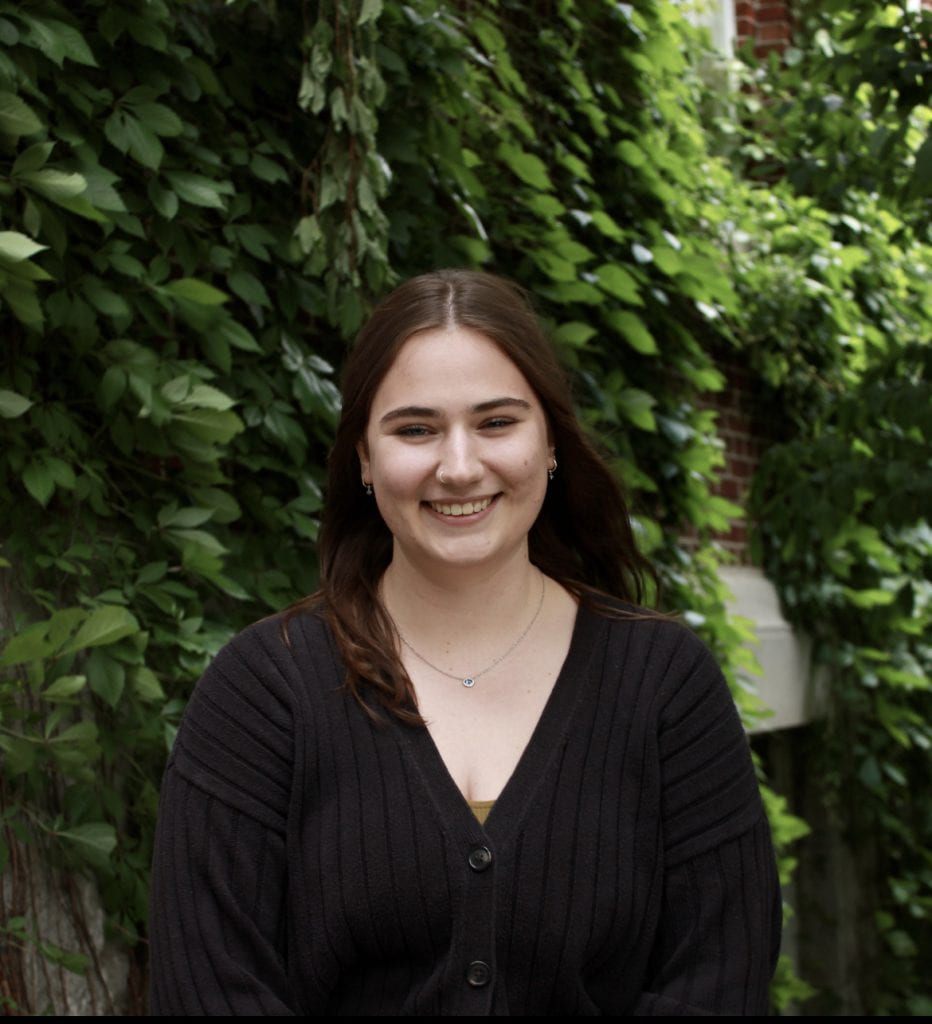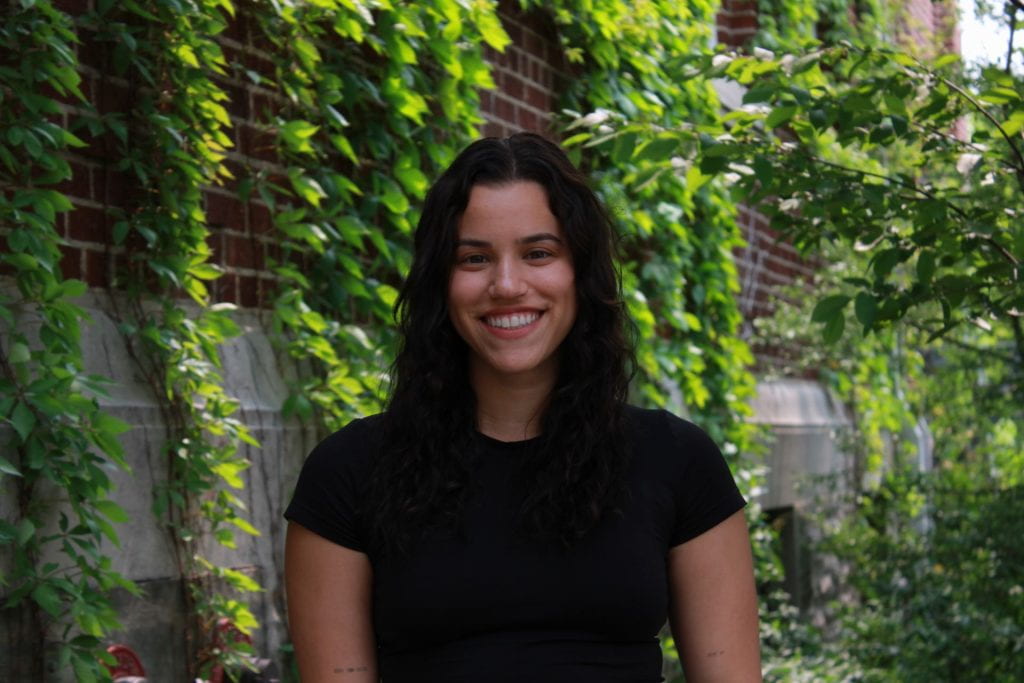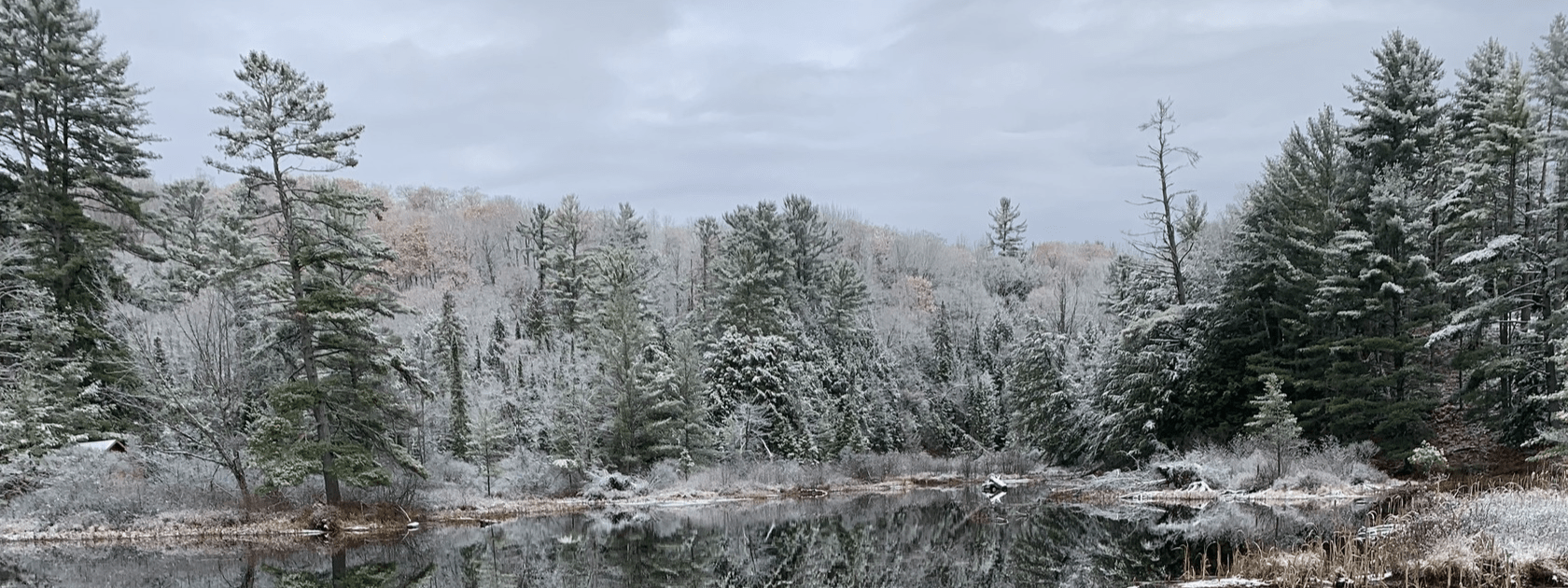Masters Students

Lara Durksen
Lara has a BA in Environmental Governance from the University of Guelph with a minor in Sustainable Business, where she completed courses in geography, political science, food and agriculture resource economics, and business. This wide range allowed her to focus on creating bridges between the disciplines and become a well-rounded student. In her last semester she completed an independent study in geography, supervised by Dr. Diana Lewis, which explored how Indigenous Knowledge and health are incorporated into Canadian Environmental Impact Assessments. Lara is pursuing an MA of Geography at U of G in the fall and will be expanding the research of Indigenous health and resource economics with a focus on creating a more comprehensive view of environmental economic understandings and the impact of current practices on Indigenous peoples’ health. In her free time, Lara enjoys reading, biking, travelling, and bartending.

Antonina Struminski-Bodden
Antonina (she/her) is a Polish and Jamaican settler researcher from the traditional territory of the Anishinaabe, Haudenosaunee, Lūnaapéewak, and Chonnonton Nations. She has an HBSc in Environmental Geoscience and a Major in Indigenous Studies; and is currently pursuing an MA in Geography at the University of Guelph under the supervision of Dr. Diana Lewis. Her graduate research focuses on the collaborative development of a hydrological model measuring water health in Oneida Nations of the Thames – a community-based participatory research (CBPR) project that contributes to the design of a Haudenosaunee value-based Conceptual Site Model. She has been a research assistant in the IndigenERA lab since January 2023, where she has been able to work with community partners and peers on research relating to health and wellbeing, energy sovereignty, and the IEHRA project. Antonina is passionate about the promotion of equity, inclusion, and decolonial praxes in academic spaces and is part of the GIDS Anti-Racism Working Group at UoG. In her free time, she enjoys hot yoga, hiking, poetry, and reading!

Jacklyn Simonson
Jacklyn is of mixed ancestry (Mi’kmaq, Puerto Rican, Settler) and was born and raised in Tampa, FL with an ancestral connection to Natoaganeg (Eel Ground) First Nation, NB. She just completed her undergraduate degree in Environmental Science in Summer 2024 and joined the IndigenERA lab in the Fall of 2024. She recently began her Masters of Science degree in Integrative Biology, where she works with Dr. Bernhardt and Dr. Lewis. Her research aims to evaluate the ecological risks of microplastic contaminants in the soil of the Oneida Nation of the Thames community from Toronto’s Greenlane Landfill.

Olivia Thom
Olivia is Oneida on her maternal side and also comes from mixed settler descent. Her family comes from Oneida Nation of the Thames, in southwestern Ontario. She has a BA in Indigenous Studies with a minor in Women and Gender Studies. She is pursuing an MA at the University of Guelph in the Geography, Environment, and Geomatics program, under the supervision of Dr. Diana Lewis. For her master’s thesis she is working with her home community to develop an environmental wellness survey that is going to be able to adequately account for Indigenous environmental health and risk assessment in relation to environmental contamination and other health and wellness impacts in the community. Olivia has worked for Dr. Lewis since 2020 on numerous projects including; developing a community report for Pictou Landing First Nation using Stata, designing and creating an online resource and website for the Impact Assessment Agency of Canada to learn how to work with Indigenous communities in Canada when dealing with resource development, extraction, land dispossession, and contamination. Olivia is very passionate about Indigenous environmental health equity and feels lucky to be able to pursue a career path that aligns with her cultural, passion, and personal journey. She enjoys hot yoga, reading, bingo, travelling and visiting with family.

Maja Wetzl
Maja (she/her) is Ojibwe, with family roots in Serpent River First Nation and Austria on her paternal side and Germany on her maternal side. Maja has a HBSc in Mathematical Science in the statistics stream with an emphasis in bioinformatics, from the University of Guelph. Maja started her Master of Science in Applied Statistics in September 2024, continuing at the University of Guelph. Through her schooling, she has been able to gain knowledge from a variety of disciplines, gaining skills such as coding, statistical analysis, and research. Maja started as a research assistant in the IndigenERA Lab in November 2023, where she will contribute to the development of the IEHRA approach. Her thesis will focus on updating the reporting of cancer incidence in Fort Chipewyan communities (Athabasca Chipewyan First Nation, Mikisew Cree First Nation, and Fort Chipewyan Métis Nation). Maja will be comparing and analyzing data from Statistics Canada, which she has access to through the Guelph Branch Research Data Centre. In previous research assistant positions, Maja has done work in bioinformatics to further biodiversity research, as well as work in forest modelling, contributing to Ontario carbon cycle research. In her free time, Maja enjoys reading, beading, painting, and hiking.
Postdoctoral Scholars

Elana Nightingale
Elana Nightingale is a Postdoctoral Scholar in the IndigenERA lab where she works on Indigenous economic impact assessment. She holds a PhD in Geography from Western University, a MSc in Local Economic Development from the London School of Economics, and a BA in Economics from Carleton University. Elana aims to support community-led research as a means to advance health and social equity for First Nations, Inuit and Métis communities in Canada. Her research interests include the social determinants of Indigenous health, community economic development, community-based research methodologies and knowledge translation.
Research Assistants

Marah Laforge
Marah is an Anishinaabe student entering her fourth year in the Bachelor of Indigenous Environmental Science and Practice Program. She is a member of Timiskaming First Nation through her maternal side and has mixed settler descent on her paternal side. Marah is passionate about braiding together Indigenous Science and Western science, decolonizing environmental policy, and supporting community-led projects to address environmental racism in Indigenous communities. Through her program and personal experience, Marah has explored topics pertaining to the ongoing impacts of settler colonialism for Indigenous peoples and the environment, Indigenous self-determination, and Indigenous-settler biculturalism. Additionally, she’s learned the importance of Indigenous Knowledge Systems and Indigenous-Led frameworks to uphold Indigenous rights and protect Indigenous lands. In her free time, Marah loves to socialize with friends and family, read, and holds a position as an executive member of the Indigenous Student Society.

Sophie Shepherd
Sophie (she/her) is a fifth-year Environmental Governance student at the University of Guelph and has completed a Certificate in Indigenous Environmental Governance. She is a settler of French and English descent from a small French farming community on the shore of Lake St Clair. She grew up between the lake and an important conservation area, and learned to appreciate the natural world by observing the seasonality of the space. Sophie continues to enjoy spendings hours climbing trees and filling countless notebooks with illustrations and notes about the beings that surround her. She is passionate about working with plants, and was able to further her learning during the Haida Gwaii Institute’s semester in People, Plants and Place. She is immensely grateful for the teachings she has received, and hopes to continue to work with Indigenous Nations and Communities towards strengthening and revitalizing relationships with culturally important plants. She remains steadfast in her commitments to uphold Indigenous data sovereignty as she works with ethnobotanically significant plants. Her training in human geography, biophysical geography, political science, ecology, economics, environmental impact assessment and other fields has given her multidisciplinary skills which guide her work. Sophie is excited to be sharpening her technical skills in data analysis while supporting the wonderful work of Dr Lewis and the members of the IndigenERA lab.

Hannah Wolfenden
Hannah (she/her) is a Master’s student in Resource and Environmental Management at Dalhousie University in Kjipuktuk (Halifax), Nova Scotia. In 2024, she finished her BA in Environmental Governance from the University of Guelph with a minor in Political Science –– this combination was foundational to her understanding of how Canada’s colonial political systems, policies, and legacies currently impact the environment, climate, and Indigenous Peoples. She is a settler of Dutch descent who was lucky to have grown up on the traditional lands of the Mississaugas of the Credit First Nation, Haudenosaunee and Anishinaabe nations, and within the lands of the Dish with One Spoon Wampum. A focus of her Master’s is understanding the sociopolitical, laws and policies, and biophysical aspects involved in managing resources and environments. She was able to use this intersectional approach to environmental problem-solving in practice this past term when producing a group report on establishing an Indigenous-led elver fishery in Mi’kma’ki while protecting the threatened species. She will continue to use this intersectional approach in her work with the lab in planning an Indigenous Value-based Environmental Health Risk Assessment (IEHRA) Policy Institute. Some of Hannah’s favourite ways to spend her free time include going on hikes with her dog, trying out new crafts, and swimming in lakes.

Alicia Schrader
Alicia (she/her) is a fourth-year geography student at the University of Guelph. She is a settler of English and German ancestry and grew up in a small town on the coast of Georgian Bay on the traditional territories of the Petun, Anishinabewaki (ᐊᓂᔑᓈᐯᐗᑭ), Wendake-Nionwentsïo and Missisauga nations, where she developed a deep connection with the land and water. Alicia enjoys returning to the water at any given chance for swimming and exploring the natural beauty. With a focus on GIS, she is interested in using geographic information system tools to visually represent environmental and Indigenous knowledge. Through coursework and research assistantships, Alicia has gained experience and knowledge in global climate change issues, human-environment relationships, physical geography and ecosystem dynamics, as well as the ongoing of impacts of colonialism on the self-determination of Indigenous peoples. Alicia is passionate about the environment and enjoys spending her time hiking, camping, painting and reading a good book. She is looking forward to sharing knowledge with the amazing team at the IndiegnERA Lab.


